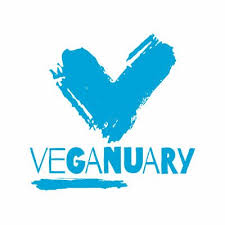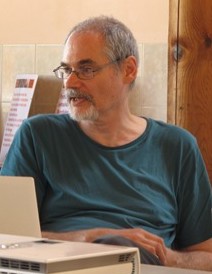Related Research Articles
Veganism is the practice of abstaining from the use of animal product—particularly in diet—and an associated philosophy that rejects the commodity status of animals. A person who follows the diet or philosophy is known as a vegan.

Carol J. Adams is an American writer, feminist, and animal rights advocate. She is the author of several books, including The Sexual Politics of Meat: A Feminist-Vegetarian Critical Theory (1990) and The Pornography of Meat (2004), focusing in particular on what she argues are the links between the oppression of women and that of non-human animals. She was inducted into the Animal Rights Hall of Fame in 2011.

Juliet Gellatley is a British writer and animal rights activist. She is the founder and director of Viva! and a former director of the Vegetarian Society. She is also a founding director of The Vegetarian and Vegan Foundation, now known as Viva!Health, along with Tony Wardle, with whom she was married and has two sons, Jazz and Finn, born in 2002.

Vegetarian and vegan dietary practices vary among countries. Differences include food standards, laws, and general cultural attitudes toward vegetarian diets.
Meat-free days or veggiedays are declared to discourage or prohibit the consumption of meat on certain days of the week. Mondays and Fridays are the most popular days. There are also movements encouraging people giving up meat on a weekly, monthly, or permanent basis.
Women have played a central role in animal advocacy since the 19th century. The animal advocacy movement – embracing animal rights, animal welfare, and anti-vivisectionism – has been disproportionately initiated and led by women, particularly in the United Kingdom. Women are more likely to support animal rights than men. A 1996 study of adolescents by Linda Pifer suggested that factors that may partially explain this discrepancy include attitudes towards feminism and science, scientific literacy, and the presence of a greater emphasis on "nurturance or compassion" amongst women. Although vegetarianism does not necessarily imply animal advocacy, a 1992 market research study conducted by the Yankelovich research organization concluded that "of the 12.4 million people [in the US] who call themselves vegetarian, 68% are female, while only 32% are male".

lauren T. Ornelas is an American animal rights advocate for more than 20 years and is the founder of the Food Empowerment Project.
Faunalytics is a nonprofit organization that provides animal advocates with access to the research and analysis of various animal issues. Its research areas include factory farming, veganism and vegetarianism, companion animals, animal testing, hunting, animal trapping, wild animal suffering, and the use of animals for entertainment purposes. Faunalytics was founded in 2000 by Che Green, and operated under the name Humane Research Council until 2015. In a book about animal activists in the US and France, Elizabeth Cherry cites the use of Faunalytics studies as part of activists' move towards practical research.
Matthew Michael Ball is an American animal activist. He is co-founder and President of One Step for Animals.
Jewish vegetarianism is a commitment to vegetarianism that is connected to Judaism, Jewish ethics or Jewish identity. Jewish vegetarians often cite Jewish principles regarding animal welfare, environmental ethics, moral character, and health as reasons for adopting a vegetarian or vegan diet.

Erica Meier is an animal rights advocate and was the president and executive director of Animal Outlook from 2005 to 2021.

Veganuary is an annual challenge run by a UK nonprofit organisation that promotes and educates about veganism by encouraging people to follow a vegan lifestyle for the month of January. Since the event began in 2014, participation has increased each year. 400,000 people signed up to the 2020 campaign. The campaign estimated this represented the carbon dioxide equivalent of 450,000 flights and the lives of more than a million animals. Veganuary can also refer to the event itself.

The End of Animal Farming: How Scientists, Entrepreneurs, and Activists Are Building an Animal-Free Food System is a 2018 book by Jacy Reese that argues animal farming will end by the year 2100 based on effective altruism reasoning and social movement strategy.
Satya was an American monthly magazine which covered vegetarianism, animal rights, environmentalism and social justice issues. It was co-founded by Beth Gould and Martin Rowe in 1994 and released its final issue in 2007. Scholar Gary Francione says Satya became the main journal that promoted animal welfare after the demise of The Animals' Agenda in 2002.
A vegan school meal or vegan school lunch or vegan school dinner or vegan hot lunch is a vegan option provided as a school meal. The meals have become part of the menu in some public school districts. Vegan school meals most reported on by the media include those added by Los Angeles, California in 2018, Portland, Maine in 2019, and New York City in 2022. A small number of private educational facilities around the world are vegan schools and serve exclusively vegan food.

David Olivier Whittier is a French and British philosopher and antispeciesist activist. He is founder of the French journal Cahiers antispécistes, the annual event Veggie Pride and of the annual meeting Les Estivales de la question animale . Olivier is also the creator of the term "veggiephobia" and of numerous articles and conferences. He is an advocate of utilitarian and antinatauralist ethics, and defines himself politically as a progressive.
ProVeg Nederland, known as Viva Las Vega's (VLV) from 2011 to 2017, is a Dutch foundation that aims to accelerate the transition towards a plant-based food system. The foundation's stated goal is to make it easier for consumers to eat plant-based more often and also to help companies address the growing demand in plant-based products. ProVeg Nederland is a member of the international ProVeg International.
References
- 1 2 Dhont, Kristof; Hodson, Gordon, eds. (2019). Why We Love and Exploit Animals: Bridging Insights from Academia and Advocacy. Routledge. ISBN 978-1-351-18142-6.
- ↑ "Interview Tobias Leenaert. 'Tegen radicale veganisten zeg ik: wees niet zo'n eikel'" [Interview Tobias Leenaert. "To radical vegans I say don't be such a jerk"]. Gemeente voor de Toekomst (in Dutch). 2017-08-25. Retrieved 2020-08-27.
- ↑ Ahituv, Netta (2017-04-28). "Will Israel Become the World's First Vegan Country?". Haaretz. Retrieved 2020-08-27.
- ↑ "Go veggie and change the world". The Bulletin. 2011-08-16. Retrieved 2020-08-27.
- ↑ Harrell, Eben (2009-05-27). "Where's the Beef? Ghent Goes Vegetarian". Time. ISSN 0040-781X . Retrieved 2020-08-27.
- 1 2 Elliott, Tim (2019-07-06). "The brutal battle for the soul of veganism". The Sydney Morning Herald. Retrieved 2020-08-27.
- ↑ Leenaert, Tobias. "About". The Vegan Strategist. Archived from the original on May 31, 2021. Retrieved March 22, 2022.
- ↑ Doctor, Vikram (2018-11-11). "How Vegans can win or lose in India". The Economic Times. Retrieved 2020-08-27.
- ↑ VeganKanal (September 7, 2019). "10 things I changed my mind about in 20 years of vegan activism - Tobias Leenaert [IARC 2019]". YouTube. Archived from the original on March 21, 2022. Retrieved March 22, 2022.
- ↑ Leenaert, Tobias (June 1, 2016). "The extremely inconvenient truth of wild animal suffering". The Vegan Strategist. Archived from the original on May 8, 2021. Retrieved March 22, 2022.
- ↑ Ramírez, Dulce (2018-11-25). "Hacia un futuro vegano: hacer del veganismo un movimiento de masas" [Towards a vegan future: making veganism a mass movement]. SinEmbargo MX (in Spanish). Retrieved 2020-08-27.
- ↑ "Dónde estamos y adónde nos dirigimos" [Where we are and where we are going]. El Diario (in Spanish). 2018-06-08. Retrieved 2020-08-27.